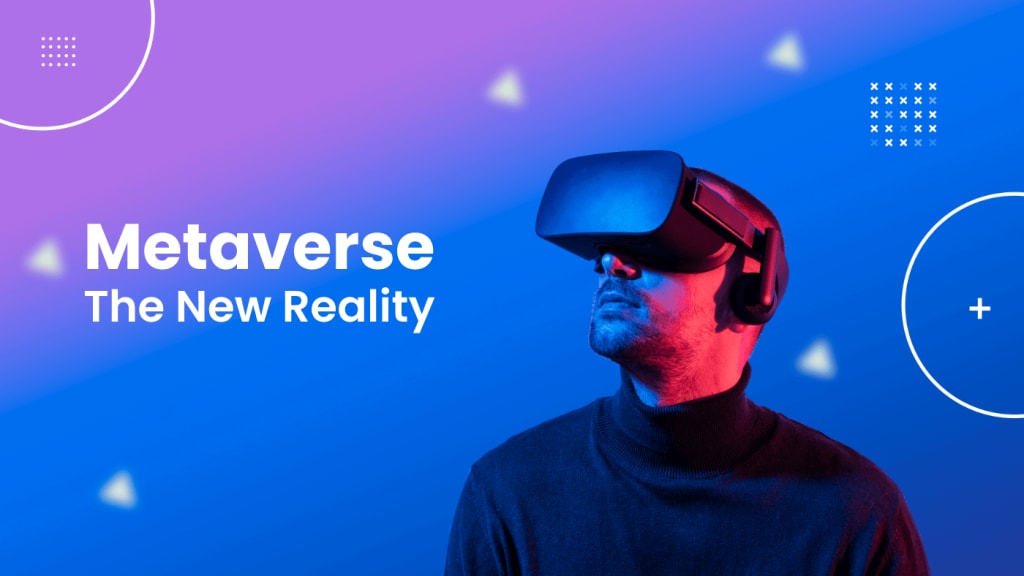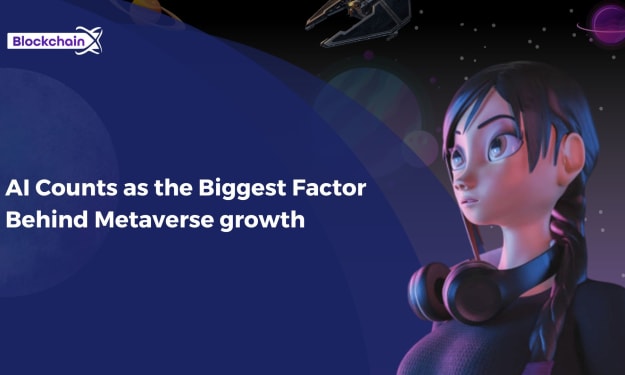Metaverse: what is the Metaverse, how does it work and what is it for?
Metaverse Development

What is the Metaverse for?
There is nothing new about the development of scenarios and virtual worlds where each user develops their own avatar and interacts with other users. For instance, the video gaming industry has been creating games in this genre for approximately 20 years, including Habbo Hotel, Second Life, and World of Warcraft. Intentionally combining this kind of universe with web browsing and virtual reality.
In the Metaverse development services , it is desired that users engage in both leisurely browsing and useful activities like attending meetings or spending time with friends and family or at work.
This choice is particularly significant when we consider that the business debuted Horizon Workrooms in August 2021, which enables users to attend virtual conference rooms to connect with other coworkers, following a year of pandemic and remote work.
The Metaverse aims to bring individuals together simply by joining to the network, where they may engage on a deeper level. It does this by extending activities and removing geographical boundaries. Additionally, it serves to build environments that are comparable to the actual ones but free of barriers in order to increase chances for learning, working, or socialising.
Advantages and Disadvantages of the Metaverse
Every technological advancement has always been met with both support and opposition, and the Metaverse is no different. There are benefits and drawbacks to this world, such as:
Advantages of the Metaverse
Equality and access to environments: Since virtual environments may be limitless, they can provide access to more individuals by removing barriers or restrictions and stimulating elements like education, training, and engagement.
New business prospects: As the Metaverse is expected to have its own economy, greater chances for business and entrepreneurship arise.
Flexible work arrangements: When the Metaverse is thriving, job flexibility will reach a new level as the remote’s frigid sense is removed in favour of working in virtual locations that deliver sensory sensations.
Opening of events: Other events and dynamics will emerge in every sphere, including those related to culture, sports, leisure, academia, tourism, and more.
Global interaction: Because there are no boundaries, the relationship forces individuals to think internationally and learn about other nations’ and cultures’ ways of life.
Metaverse Disadvantages
Aspects of “reality” may be overlooked if the Metaverse becomes as comprehensive as the actual world since more time would be spent in virtual settings, according to some experts.
Psychological and emotional issues: Since these virtual worlds’ effectiveness depends on users remaining connected for the longest amount of time possible, this might result in psychological and emotional issues including anxiety, disassociation from reality, and dissatisfaction, to mention a few.
Data vulnerability: If data security on the Internet is currently a significant concern, the threat will be higher with the Metaverse since individuals will share more, offer more of themselves in these virtual communities, and conduct numerous transactions and activities there.
Physical risks: Using gear and software to engage in experiencing Metaverse encounters might have unmeasured physical consequences. For instance, using virtual reality goggles would have long-term repercussions on the eyes.
A new technology must follow a certain acceptance and viability curve in order to be adopted and successful; yet, many individuals could not have access to these virtual settings, creating a technological gap.
How the Metaverse works
The Metaverse development company is already in use, but they are momentary or restricted virtual environments for a particular need. It is still not an open world where anyone may try to move about in it.
Companies, organisations, and individuals create virtual or dynamic environments on already-running virtual communities. People can join in various settings and communities in the vast network’s network by connecting to the Internet.
Companies are creating these areas because of the prospects the Metaverse offers and the potential revenue they may provide. In fact, according to a Bloomberg Intelligence estimate, its worth will surpass $500 million in 2021 and climb fivefold by 2030.
Let’s examine a few key features to better grasp how it functions:
A virtual universe with many habitats, communities, and places will exist when the Metaverse becomes an ubiquitous reality.
People will use gadgets to access the internet and create avatars, or virtual versions of themselves.
The avatar will wander about the virtual world and decide which locations and communities to interact with.
There will be links connecting and connecting everything. Therefore, there will be consumers who are consuming what is offered in those virtual environments on the one hand, and producers and generators of experiences that support the communities and spaces, on the other.
In the metaverse, it will be possible to interact with a variety of virtual things and engage in physical-world activities including attending events, shopping, conversing with others, studying, attending meetings, and much more because there are no boundaries in the virtual world.
In such a manner that the experiences are combined or there is some sort of synchronisation between the two realms, there will be a conjugation between the virtual and the physical. For instance, you may visit a home in a virtual setting, view it, and decide to buy it; after that, you would receive the keys to the home and be able to move in.
The Metaverse vs. virtual reality: what’s the difference?
We have said that virtual reality would assist the Metaverse thus far, but what is the actual distinction between these two concepts? There are at least five significant distinctions between the two, and we list them for you here:
1. Virtual reality is clearly defined; the metaverse, no
The definitions of the Metaverse and VR differ most noticeably from one another. As a result, while the definition of the phrase “virtual reality” may be found, the definition of the term “Metaverse” is far more hypothetical. The Metaverse, according to Mark Zuckerberg, is “a digital universe inhabited by digital twins of people, places, and things,” as part of the description.
These descriptions are, of course, a little hazy in comparison to what we know about virtual reality. Some have even ventured to speculate that the Metaverse is nothing more than a word play used to describe technological advancements of already existing items from the internet. It is also possible that the businesses responsible for the technology of the Metaverse, or Metaverse, do not have a complete definition either.
2. Facebook does not own any of these technologies
Who is actually in charge of defining the Metaverse is another subject that has not yet been fully resolved. Due to its ownership of the virtual reality headset manufacturer and retailer Oculus Rift, Facebook has a significant impact on the advancement of this technology. Despite this, Facebook is still just one player in a huge industry.
The same is true of the Metaverse: even if Facebook Inc. has changed its name to Meta, it is still merely one of several businesses creating this system. For instance, Microsoft recently unveiled Microsoft Mesh, their version of a mixed reality platform that is strikingly similar to the Metaverse and its many definitions. Furthermore, we might infer from Facebook’s recent statements that they perceive themselves as a component of the Metaverse rather than the Metaverse itself.
3. The Metaverse includes a shared virtual world
The Metaverse is a digital environment where individuals may communicate online while wearing virtual reality headsets. As a result, it is possible to see how the Metaverse’s virtual spaces are similar to other virtual spaces that already exist today in that users must create their own characters or avatars in order to interact with others in entirely virtual spaces. However, the Metaverse differs from current virtual spaces in that it appears that it will be able to grant access to the entire internet, unlike current virtual spaces (limited by size).
4. The Metaverse will not be limited by virtual reality
In other words, virtual reality won’t have any influence over the Metaverse. As an alternative, it may also be accessible using augmented reality gadgets or any other internet-connected device.
This makes way for many features that are incompatible with virtual reality. For instance, augmented reality could make it possible to project elements of the Metaverse onto the physical world. Some virtual environments will be made such that using a device is not required.
5. The Metaverse is potentially much bigger than virtual reality
Virtual reality is mostly utilised nowadays for entertainment, but it is also employed for healing, sports, and education. On the other hand, the Metaverse seems like a better version of the internet as we know it, at least in terms of scope. The Metaverse, unlike VR, is predicted to have a significant impact on how people work, access social media, and use the internet.
What implications will the Metaverse have in 2022?
In addition to technological effects, the Metaverse in 2022 will have cultural, societal, and personal effects as well. In the end, the Metaverse is a transformation of the person; each person’s choices are used to create an avatar. Furthermore, the Metaverse will make online activities considerably more immersive than current developments in virtual reality.
In other words, the Metaverse development solutions will enable us to engage with brands and immerse ourselves in virtual worlds in settings designed both for this and the consumption of other kinds of information. All technologies have benefits and drawbacks, and this fact is primarily what raises the first alarms in this respect. People lacking in social skills will discover opportunities to build personalities in the Metaverse that they would not otherwise have. However, they also risk having fewer and fewer encounters with the real world, which may be worse.
The Metaverse has the potential to be a platform and environment for co-creation and collaboration between content creators and businesses, which will undoubtedly speed up the development of technology and enable an increasing number of fields of knowledge to come together to develop ideas. This is important from a technology and marketing perspective.
About the Creator
reddspark out
Enter and create digital economies, leveraging blockchain technology with our Metaverse development services. Design, build, and launch amazing experiences for your users effectively with a leading metaverse development company.






Comments
There are no comments for this story
Be the first to respond and start the conversation.